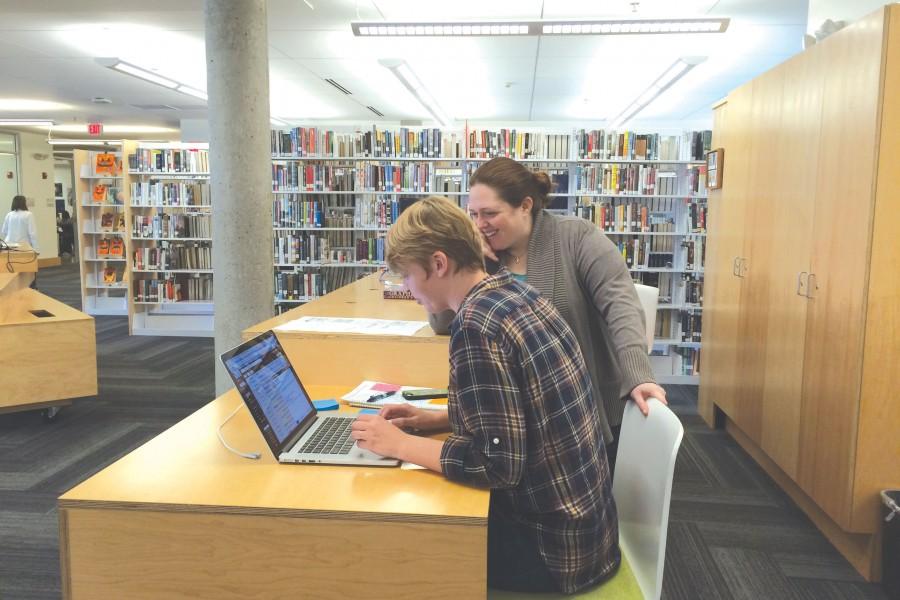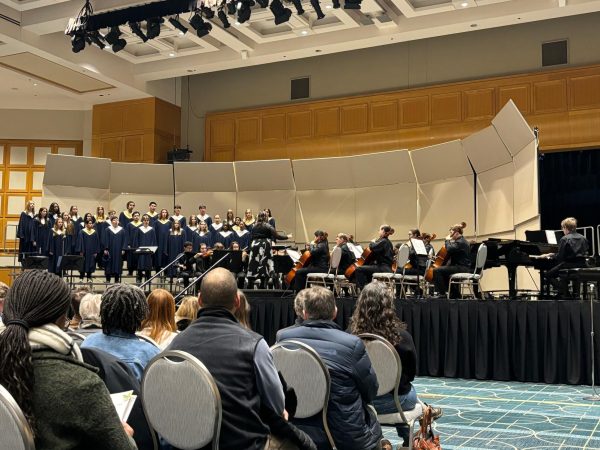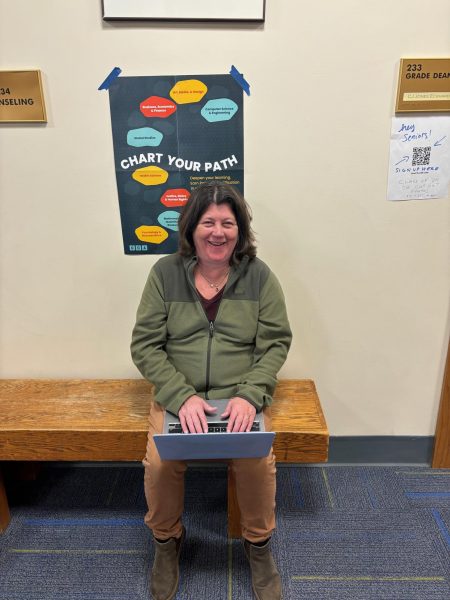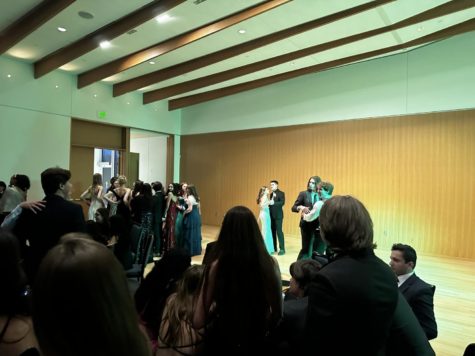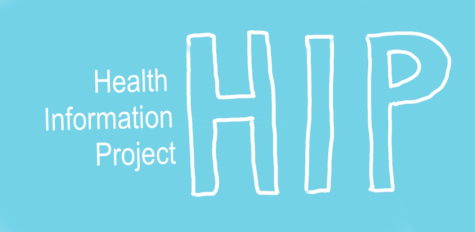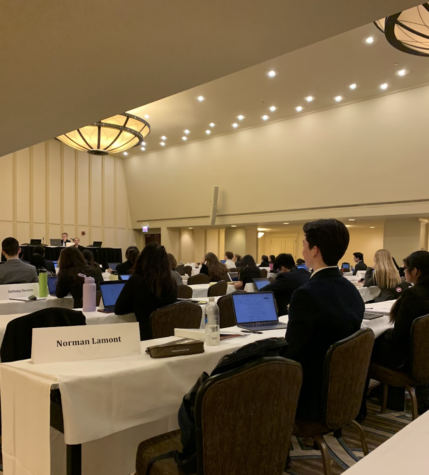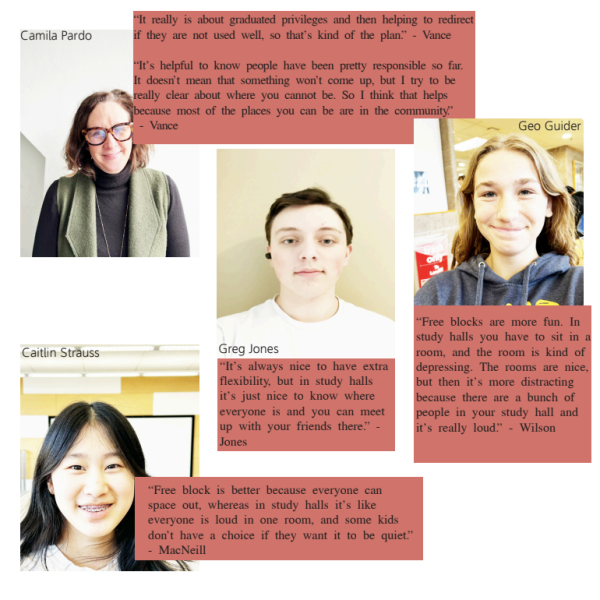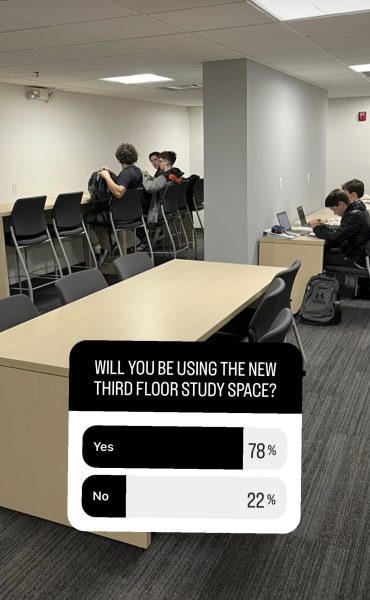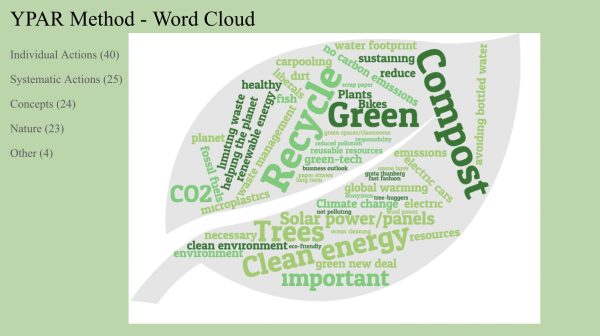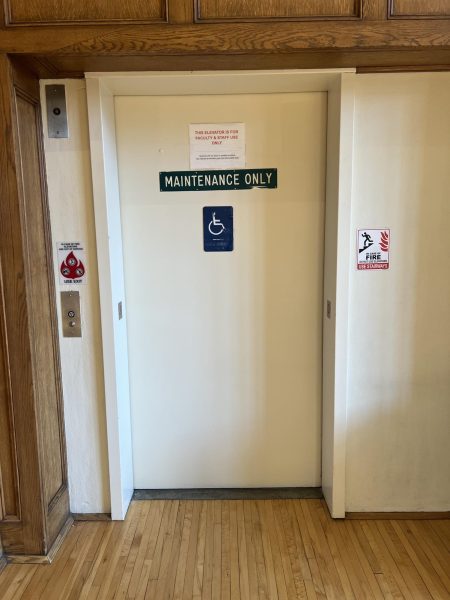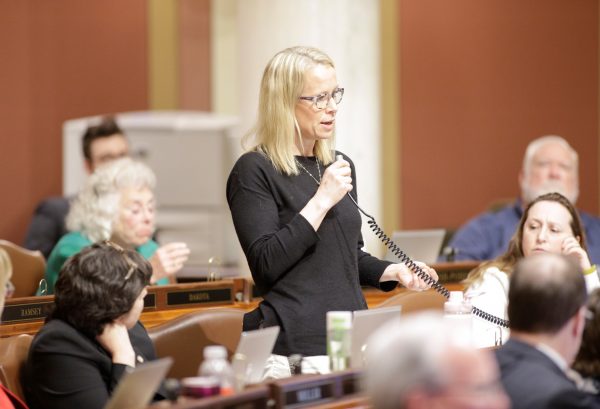Return to Sender
Library emails spark debate
Kali Olson and Lizz Buchanan send out emails on behalf of the library, yearbook, and tech staff.
An email a day. Maybe two. Who knew that such an ostensibly trivial issue would snowball into a major controversy? Kali Olson’s emails regarding new developments in the library have raised questions about not only the relevance of the emails themselves but also Blake’s communication systems as a whole – a question that Forum and the library staff are continuing to deliberate.
Forum created a petition to modify the emails – which garnered 126 student signatures in less than 30 minutes. The students who signed the petition shared the opinions of Neo Bhavsar ‘18, who stated, “a lot of my classmates have expressed frustration with these emails because they’re annoying and they don’t really do anything. People delete [the emails] whenever they see [Ms.] Olson as the sender. But what if she’s sending something important, something the students need to know?”
For this reason, Forum proposed that the information in the emails be moved to the daily bulletin. This idea was ultimately rejected because it was indirect and the bulletin didn’t allow for the utilization of graphics.
This brought Forum to a new proposal: have the library staff announce the information during assembly. Forum believed that this compromise addressed both the directness and graphics dilemmas evident in the bulletin proposal.
After further talks between the two groups, the proposal was deemed unviable for similar reasons. Lizz Buchanan explains the dilemma: “you have to think about attention span in assembly. How many times do students just tune out by the end of assembly? We think, as a library, that email is a more effective way of communicating with the student body, to make sure that we’re reaching all of you, all 500-some students.”
The newest proposal Forum is working on is to create email filters, where Forum would help students filter emails that didn’t pertain to their interests. As Forum representative Sam Gelb ‘17 states, “ideally what we’d like to see is Forum teaching students how to filter emails to their needs. We plan to come up with details and instructions on how to filter emails, which will teach students how to manage their inbox effectively.” By learning how to filter their inboxes, students would be able to pick and choose which emails to receive and which to hide.
Regardless of possible solutions, the email debate is becoming more and more polarized and all potential solutions seem to be abandoned. Senior class president Allen Wang ‘16 stated, “after being approached on personal terms … [the librarians] in turn deferred Forum to legislative solutions. So in reality they give us no choice but to accomplish our ends through the unpopular means. If the case against it is that there’s student opposition to what Forum is doing, you think that it would have been mentioned by now. The complaint [is] by the student body that the emails exist, not by Forum.”
Others have a different perspective on the matter. Beth Calderone, a teacher on Forum, put the act of deleting emails into perspective, saying, “Let’s stop taking ourselves so seriously. It’s emails, after all… we need to assess the level of harm caused by having to delete, what, twenty emails a month? And balance that against the energy that these emails represent in creating a positive environment… when we enter the library space.”
With this, Calderone poses a critical question: are deleting a few handfuls of emails worth losing the welcoming environment created in the library? She also cited the benefits of learning to handle an inbox, arguing that email management is a necessary skill in the 21st century.
To this end, Forum’s idea to teach students how to filter emails may be the most productive and reasonable answer to this ongoing controversy.
Olson and Buchanan, the writers of the library emails, underscore their purpose. “A big part of [the library] is making sure that the adults and staff are approachable, and email turns into a strategy for us to remind you guys that we’re all here to help you and that we’re not scary. The puzzle [emails] may only appeal to 35 kids, but those 35 kids need it. The banned books may only apply to a different 35 kids, story time is a different group of kids. We’re trying to reach you where it makes sense. If you don’t care about the new books, hit delete, that’s fine, we’re not offended,” Buchanan says.
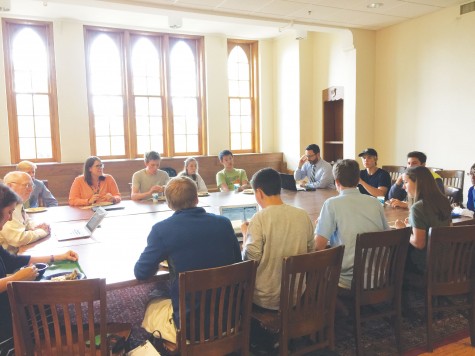
Forum’s ongoing debate over the emails spark school-wide discussion.
Olson reaffirms this statement, saying, “I get responses to all emails that I send out. If I sent out an email about puzzles and nobody did the puzzles, I would stop sending them out.”
When considering the amount of emails the student body receives, including emails from colleges, Buchanan explains, “are you a member of the communities of the [colleges]? No. Are you a member of Blake? Yes. By being a member of this community, you’re going to have to deal with things that you don’t care about on occasion, but that’s the cost of being part of the community. Sometimes you have to go ‘Oh, neat, delete.’ And sometimes you go ‘Oh, awesome, I’ll be there.’ That’s kind of the way it goes. If you think about how many kids that might not care about the art activities or might not care about the sporting activities, but still have to interact with that information. Whether that be in assembly or in an email.”
Buchanan concludes, “if email is actually the biggest issue in our school, what does that say about our community? Does that actually mean that we’re in really good shape? Or does that mean that we’re ignoring something that’s bigger? And I think that might be what should come out of this conversation.”
As with any controversial issue, there are pros and cons to the library’s emails. However, either way you spin it, the library emails have precipitated discussion over Blake’s communication systems as well as the purpose of emails as a whole.

Maxine has been a Spectrum Editor since the spring semester of her Freshman year. She was the Student Life Editor for her freshman/sophomore year on staff,...

